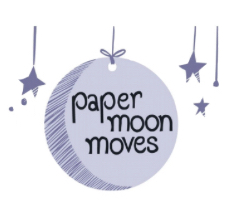This is another post in a series exploring the top reasons we keep stuff, according to David Ekerdt, professor of sociology and gerontology at the University of Kansas. Dr. Ekerdt has spent his career interviewing and studying people, digging into their attachment to their belongings and trying to understand why we love our things so much. He developed this list of the top reasons we keep things:
It seems useful.
We think it is worth money.
It gives us pleasure.
It represents us.
We may need it one day.
It was a gift.
Conservation is a virtue.
Legacy – we want to leave things to people when we die.
We keep because we can.
In this post I am exploring this idea that we keep things because they give us pleasure.
I saved the best for last. This is the opposite of my usual types of blog posts, because now we get to focus on the positive side of owning things. We own a lot of things because they bring us pleasure.
And that is wonderful. If something brings you pleasure, I want you to keep it and love it, and every time you look at it, I hope it brings a small spark of happiness.
One thing to keep in mind on this topic is that we all change, all the time. And things that bring you pleasure today may not bring you pleasure in ten years, or even in ten months.
Sometimes I feel embarrassed when I come across something I bought that no longer brings me pleasure. Often it was an impulse purchase and, believe me, I have had my fair share of impulse purchases! I once owned a pair of dark purple leather pants. If you know me, you know this is not my style. I had been shopping with a friend in a boutique store I could barely afford to enter. She encouraged me to try on the pants. So, there we were in the dressing room, with her telling me I looked amazing. They were expensive, but she was really enthusiastic about the pants and convinced me to buy them.
I kept them for about a year. I would sometimes try them on as I was getting ready to go out, but I always felt foolish and never wore them outside. Remembering the hefty price tag, I convinced myself that someday the right occasion would present itself. Finally, I donated them. At first, I was mad at myself, regretting the amount of money I had wasted. But eventually I was so happy with relief just to get rid of them.
Another important factor is to really analyze what it means for objects to bring you pleasure. We often feel a euphoric rush when we buy something. And when someone suggests throwing it away, we go on the defensive, believing we are protecting that euphoria. But ask yourself honestly if you feel the euphoria anymore? Something may be sitting in the back of your closet or tucked away on a high shelf, virtually forgotten about. Then someone brings it up and you instinctively say, “I love that.” But do you?
It’s important to get into the habit of checking in regularly about how much pleasure your things really are bringing you. This way you can cycle out the things that used to bring you pleasure but no longer do so. And don’t let bad purchases like the purple leather pants get you down. Just chalk it up to a learning experience (for me: don’t shop with this friend again!) and move on.
Because the key to getting pleasure from your belongings is not having so many belongings that you forget what you have. It’s a fine balance. We all like to buy nice, but we need to make sure we don’t own so many things that we get overwhelmed.
It’s like that expression: less is more. This expression was popularized (but not coined) by modernist architects who felt that the true beauty of a building was in the simplicity of its design, not in the ornate imagery decorating it. It’s the same thing with a home full of belongings. If you have too much stuff, you can’t appreciate the individual things you own. But once you pare down, only your favorite things fill your home, and they can all bring you pleasure.





